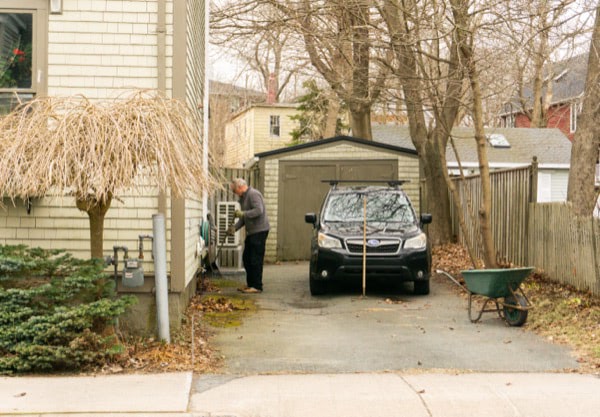Summer yard prep season has arrived! Here are 5 tips to help guide you as you get your property ready for summer.
Should I stay or should I go?
A separation often involves the family home. Here is some information from our expert family and real estate lawyer Meg Green from Green Tynes Law Office.
From the expert:
Usually, the biggest asset that a couple has together is the home. When it comes to the home the law is pretty clear. Either one person will buy out the other’s interest or they will need to sell the home. Before the buyout or sale, one person will have what we call exclusive possession of the home. This will either be by agreement or court-ordered. If the couple marries, both parties have an interest in the home regardless of whether both parties are on the deed. With common-law couples, both parties need to be on the deed. If only one party is on the deed then it is technically their property alone. It is possible for the party without ownership to get a portion of the equity. However, they would need to go to court and make an equitable trust argument which is beyond the scope of this article.
Once a couple decides to separate, they must decide if one of them is going to stay or both are going to go. Many people do not realize that they may have a good chance of taking over the home. I often get clients telling me that they cannot afford to keep the home. This is when I suggest that they speak with a mortgage broker to discuss the possibilities of refinancing. It is especially helpful if the mortgage broker has experience with what we call spousal buyouts. Almost every client I have had in my office has indicated to me that they did not think they would be able to afford to keep the home and almost all of those clients are happily still living in their homes after a visit to their mortgage broker.
Then what?
If a couple has children, it is especially important for one party to stay in the home for the sake of consistency. When determining whether a single parent can afford to stay in the family home, a lender will look at child and spousal support payments along with income.
When a party refinances they have to get a mortgage high enough to pay off the old mortgage and pay out the other party’s interest in the home. Sometimes another family or matrimonial debts are paid off. All of those numbers can be worked out in a separation agreement which will contain wording that will satisfy the lender (bank or mortgage company). The separation agreement once drafted is forwarded to your mortgage broker, or bank if you do not have a broker; the money is then paid out. The party vacating the home signs over their interest in the home via a Quit Claim Deed and the party staying in the home signs a new mortgage in their own name, thereby releasing the leaving party from any further obligation regarding the home.
See a mortgage broker:
Currently, the mortgage rules allow a borrower to refinance up to 80 per cent of the market value of the home. Through a spousal buyout, you are able to borrow up to 95 per cent of the market value with the separation agreement in place and a private purchase and sale agreement.
There are no immediate tax consequences involved in a spousal buyout with respect to the home much in the same way spouses are exempt from paying tax on RRSP spousal rollovers. Taxes only come into play when the party keeping the home decides to sell later on down the road.
So when thinking about whether you should stay or go, perhaps the option to stay is much more realistic than you may have realized.
Have more questions? Feel free to contact us!


